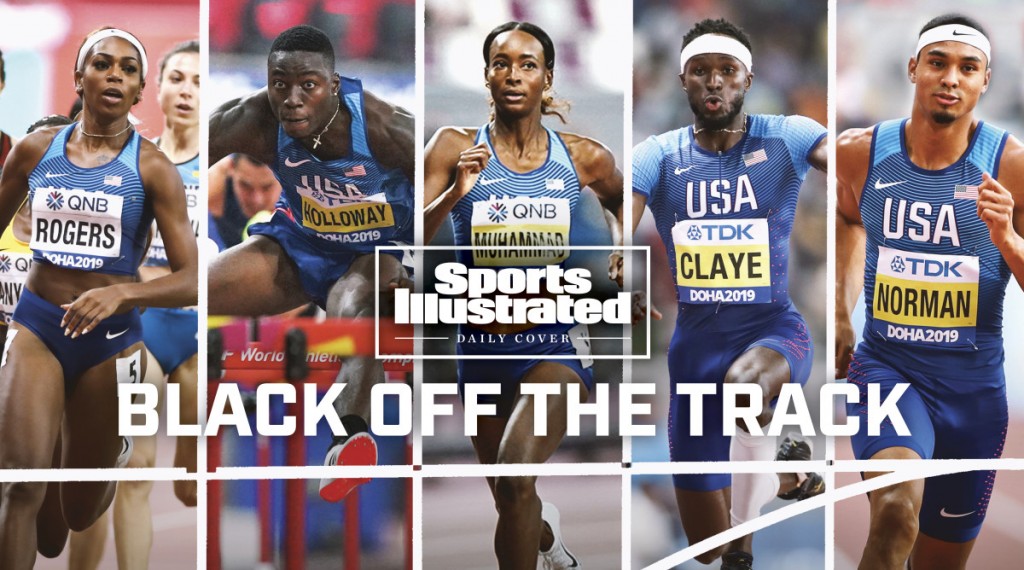Black Track Athletes Share Their Encounters With Racism in America
Tag Archive for 'US'
They’re not introduced in the opening-day pageantry. They don’t wear uniforms. They don’t have lockers in the clubhouse. Some even have weird titles, just to protect their anonymity. Yet, behind the scenes, there are proving as invaluable as any staff member in a Major League Baseball organization.
Mental skills coaches, employed by a record 27 baseball clubs to open the 2018 season, are valued more than ever.
“If you said mental skills before,’’ Chicago Cubs manager Joe Maddon says, “that was an absolute sign that you were weak among the old-school guys. Deep down, there were a lot of guys who wanted to talk to them, but they knew that if they were seen talking to them, it would be seen sign as a sign of weakness. And the manager might think less of him.
“That was an absolute fact, and even today, I don’t think that stigma has been totally erased. To think that psychology is an indicator of weakness, truly is an ignorant statement. When people are fighting it, it’s only because they don’t understand it.
In the words of the late Yogi Berra: “Baseball is 90 percent mental. The other half is physical.’’
Julian, an 11-year-old fifth grader, guides his team into warm-ups, bouncing two balls at once. But age, size and the strong contrast of his stature on the court with relative giants have brought global attention through Internet videos. The most-watched clip of Julian has generated more than 1.27 million views on YouTube.

These days, we’re more likely to see professional athletes on products than protest lines. But it wasn’t always this way. In the 1960s, sports stars were often as famous for what they believed as for their home runs. Back then, many athletes spoke out about civil rights. Muhammad Ali was stripped of his heavyweight title and threatened with imprisonment for refusing to fight in Vietnam, on the grounds of racial discrimination. By the 1970s, the issue of the day was women’s rights. Tennis player Billie Jean King used her fame on the court to fight for equal opportunities for female athletes. Today, King is also an advocate for gay rights, but for most of her career, she stayed in the closet. Now, it’s not uncommon for a female pro athlete to come out, but as of yet, no current male players of America’s four major pro sports (football, basketball, baseball and hockey) has publicly said he’s gay.
Former Major League Baseball player Billy Bean spent nine years in silence about his sexual orientation in the ’90s. “For me, I was a baseball player, and I did not identify as a gay person who played baseball. I was a baseball player first and foremost,” he tells weekends on All Things Considered guest host Celeste Headlee. “You don’t get to the major leagues — nobody does — without making that the absolute No. 1 priority and passion of your life.” He says no one knew he was gay. “I had never told anybody. I’d never told my parents, I’d never told my best friend. The only person that knew was the person I’d left my wife for,” he says. He spent three years with his partner, who died in 1995. “That was a very, very difficult experience for me to try to weather on my own,” Bean says. “But I just think that because I had no precedent of anyone in the environment, there was no person for me to model myself after. And I think that I was afraid.” When Bean played, he says gay slurs were “thrown around like ‘if,’ ‘and’ or ‘but.’ ” Bean, author ofGoing the Other Way: Lessons From a Life in and Out of Major League Baseball, never spoke up. “I didn’t talk about gay rights, I didn’t defend gay rights. I didn’t bring up the topic. It was my dirty little secret,” he says.
Earlier this month, ESPN published a poll on athletes’ political views, including whether the U.S. should legalize gay marriage (http://espn.go.com/nfl/story/_/id/8465169/anonymous-athletes-give-views-presidential-election-social-issues-sports-gambling-espn-magazine) . The study found overwhelming support in the NHL — 92.3 percent — as well as majority support in the NFL. MLB and NBA players were 45 percent and 46.2 percent, respectively, in favor of legalization.
A number of teams have found advantages to reaching out to the LGBT community. Some teams have been making public service announcements and giving donations to community organizations. See video of Baltimore Orioles: http://mlb.mlb.com/video/play.jsp?content_id=17294739
(From: http://www.npr.org/2012/10/13/162862945/a-shifting-playing-field-coming-out-as-a-gay-athlete)
(Visit: http://www.itgetsbetter.org/)





